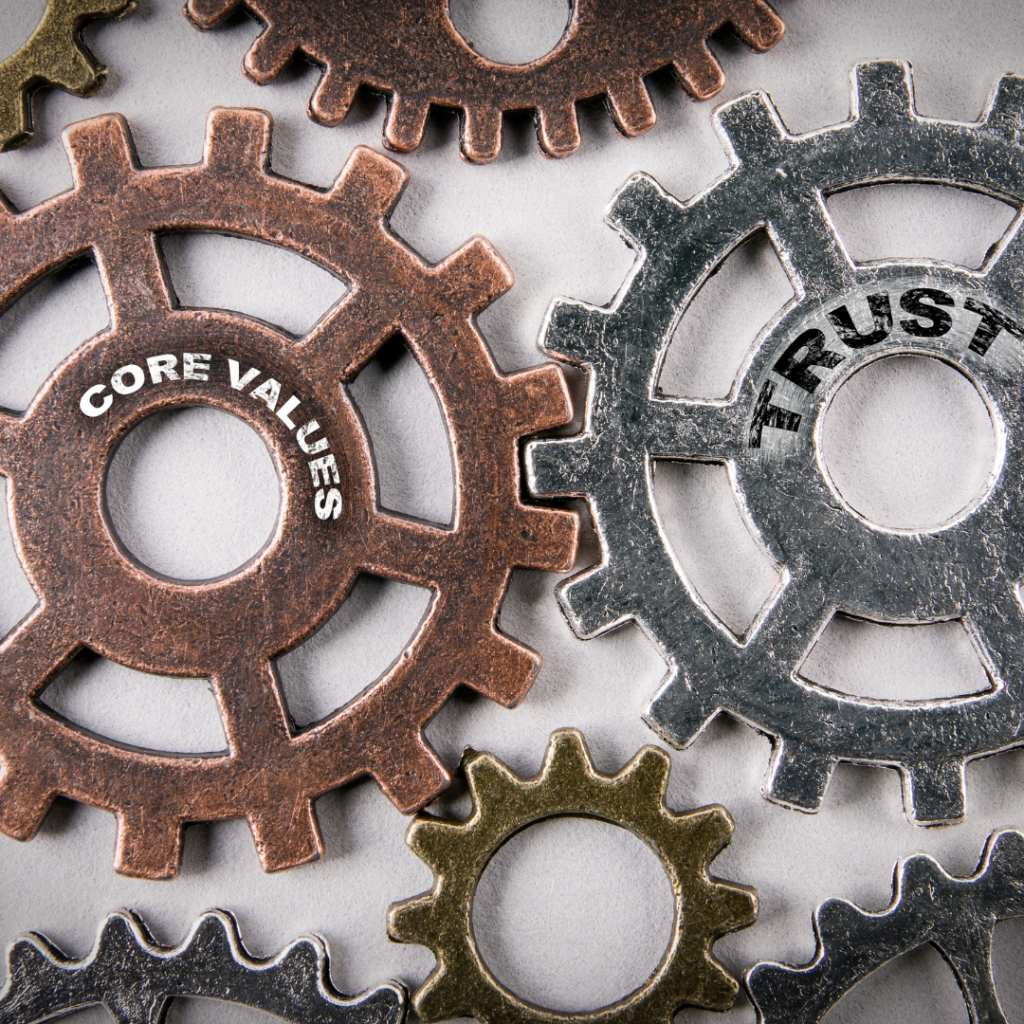
We feel at ease with people who are like us. So, it’s easy to promote this self-centered perspective without realizing it. But CEOs who head exceptional teams reject an egocentric attitude.
Smart leaders take an approach that is outward-facing and altruistic. They understand that when you commit to making your team successful, they will live up to your expectations.
What chemistry creates an exceptional team? In my role as a consultant, these are four core qualities that I’ve observed. Groups that share these traits work well together and produce amazing work.
- The drive to achieve organizational goals for personal satisfaction and growth.
- The knowledge and skill to execute initiatives at a high level.
- The passion that takes a job beyond work into fulfillment and fun.
- And a strong commitment to the mission and their teammates.
With the exception of skill, these characteristics are more innate than teachable. But they are the foundation for outstanding professionalism. The right environment will encourage their growth. If you are the CEO, you have the primary responsibility for creating a culture that promotes these positive attitudes.
Establish Trust
Lately, I’ve been thinking about the value of trust. In the current political and cultural environment trust is at a premium. Yet it is foundational to all positive relationship building. The four qualities I outlined above depend, first and foremost, on trust.
There are plenty of leaders who are feared, disliked, or simply viewed as incompetent. And work goes on. Employees can be productive even under less-than-ideal circumstances. But those negative emotions are invisible barriers. They impede progress, create confusion, and stifle innovation. Worst of all, lack of trust generates a constellation of other unproductive feelings and actions.

Trust isn’t just about modeling good behavior or making people like you. Trust involves creating a set of agreed-upon values that the team lives by, can depend upon, and can measure their performance against.
My colleague, Sandy Marsico, Founder and CEO of Sandstorm Design, tells this story about how she established trust in her organization.
“Ten years ago, I woke up one morning and discovered that I didn’t want to go to work.” As Sandy struggled to understand why she wasn’t happy at her own company, she realized that she needed to look in the mirror. “I kept asking what was wrong with my staff, and I understood that they were not the problem, it was my fault. I thought I could lead by example, and that was not enough.
“I called a staff meeting. The agenda was The Best Company You’ve Ever Worked For. We had note cards and a big whiteboard. We posted and recorded everyone’s ideas. I promised the group that I would make our vision a reality. But I also told them that the unproductive behavior had to stop. It was a successful bargain.
“Our values grew out of that meeting. They are each important, but the warrior spirit is our defining characteristic. Being a warrior means that we are all in this together. No one is left behind. That extends to our clients as well. Once we form a relationship, we do whatever it takes to make good on our commitments.”
Trust is a complex issue. But the warrior spirit is as good a definition as I’ve heard.
Set Goals and Expectations
A defined set of values helps teams to live up to cultural and behavioral norms. Similarly, goals provide a strategy for working together and prioritizing time and resources. To share the responsibility as well as the achievements, teams should develop these objectives together. Think of them as performance standards for the group.
Meet with people individually to discuss where you believe their skills best serve the team and as a group to explain how those dynamics work together. Make time to regularly assess progress and adjust for the unexpected.
This type of check-in can easily devolve into ticking actions or accomplishments off a list. Keep the conversation meaningful with an honest discussion about strengths, weaknesses, and progress that avoids judgment. In an atmosphere of trust and safety, evaluating the team’s performance can also be an opportunity for individuals to identify challenges and to seek support from their colleagues.
Connect your achievements to the organization’s purpose and help the group see their work in a broader context. Avoid singling out any one employee for kudos or criticism. When you celebrate the wins and problem-solve the roadblocks together, you embrace that warrior spirit.
Be Yourself
Solidarity with the team comes more easily when the group feels a bond with the leader. Playing the Wizard of Oz can be tempting. While hiding behind the metaphorical curtain might make you feel more comfortable, it won’t obscure the depth that is missing from your relationships with colleagues.
Showing your authentic self demands more vulnerability than some CEOs are willing to bring to the workplace; however, the more you tip the scales toward friendship, the richer your team will be.

Work is still work, and it requires skill to manage relationships where you may need to have difficult conversations or take action that might be unpleasant. In the long run, these challenges are easier if you are a trusted leader who is perceived as acting with integrity.
Kate Emshoff, Director of Business Operations at the American Medical Association, describes the rewards she gets from being herself with her team like this.
“I bring my whole self to work. . . This has been valuable because the relationships that I have with my team are deep and trusting. . .When people know who you are, and you have that deep understanding it makes everyone happier to spend time together. I get to know my team well. I know what they are excited about and I look for opportunities for them to succeed. I consider some of my team members among my closest friends. It’s really wonderful for my life.”
Offer Advancement
If you prefer not to let others see you too closely, lean into seeing them. Demonstrate interest in people’s lives outside of the office. Learn the names of family members and pets. Ask how your colleagues spend their spare time. Above all, take responsibility for helping the employees you supervise advance in their careers.
I am an enemy of the status quo. And business as usual can’t survive in an environment where lifelong learners live. Certifications, advanced degrees, memberships, and other skill-building initiatives are not icing on the cake. If you want an exceptional team, then education is essential to your group’s growth. Provide opportunities that include learning, connection, and new experiences.
People are your association’s greatest resource; it makes sense to invest in their improvement. If the board needs convincing to include those dollars in the budget, share these statistics from the ClearCompany Blog:
- Employees who have access to professional development opportunities are 15% more engaged.
- Retention rates are 34% higher among organizations that offer employee development opportunities.
- 58% of employees (62% of Millennials and GenX) say professional development contributes to their job satisfaction, a major factor in retention.
- 34% of employees say that career development opportunities motivated them to leave their previous position.
If you don’t have a professional development plan in place, make a New Year’s resolution to begin working smarter. If you’ve been distracted by operational activities turn your focus back to people. Recommit yourself to your team’s success, and they will return the favor. Your organization, your members, and your life will improve when you make others shine.


